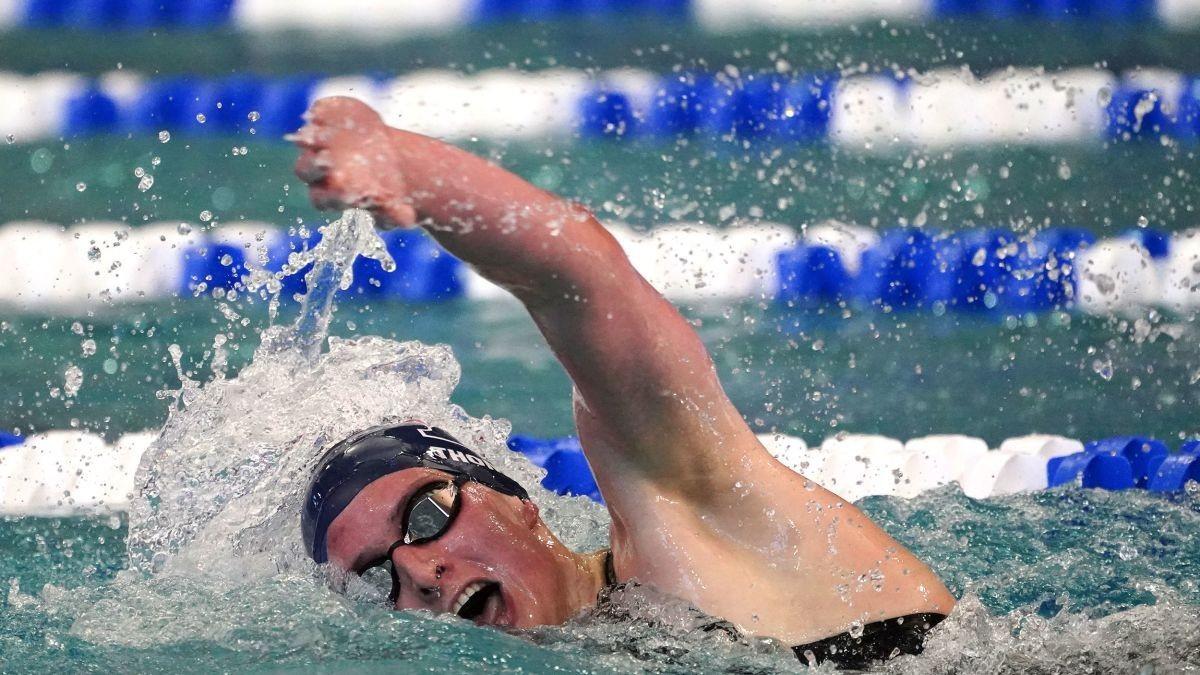The international sports community has been shaken to its core after Lia Thomas, the transgender swimmer who has long been at the center of controversy, reignited debate by insisting on her right to participate in the 2028 Olympic Games. In an explosive public statement, Thomas declared, “I am a real woman, just like anyone else on the women’s team, and therefore I must be allowed to compete.” The remark immediately triggered outrage across the sporting world, particularly within the United States women’s swimming team, who reacted with fury and indignation.
According to reports from major U.S. outlets, members of the women’s national team described Thomas’s demand as a “blatant insult” and an unacceptable threat to the fairness of competition. In a unified stance, they issued a stark ultimatum: “If he shows up, we will withdraw from the Olympics.” The statement, both unprecedented and shocking, has sparked a national and international firestorm, throwing USA Swimming and the International Olympic Committee into the center of one of the most divisive debates in modern sports history.

The controversy surrounding Thomas is not new. Having transitioned during her collegiate career, she quickly rose to prominence after competing in NCAA women’s events, where her victories sparked heated discussions about biological advantages, gender identity, and competitive fairness. Critics argue that her physical attributes as someone born male give her an unfair edge over female competitors. Supporters, however, maintain that her participation represents progress in inclusivity and equality, and that denying her the right to compete is discriminatory.
This latest escalation has brought the debate to a boiling point. Never before has an entire national team so openly threatened to withdraw from the world’s most prestigious sporting event. Analysts suggest that the U.S. women’s team’s declaration is not merely a reaction to Thomas herself but reflects a growing frustration among female athletes worldwide who feel that their voices are being sidelined in the broader political and social debate over gender identity in sports.

The timing could not be more critical. With less than three years until the Los Angeles 2028 Games, the issue places immense pressure on governing bodies to clarify their stance. USA Swimming has already been forced to convene emergency meetings. According to insiders, officials are deeply divided. Some fear that excluding Thomas will trigger backlash from advocacy groups and human rights organizations, while others warn that allowing her to compete could lead to mass boycotts, not only from the U.S. women’s team but potentially from other nations as well.
Public reaction has been equally polarized. On social media, hashtags both supporting Thomas and condemning her have trended simultaneously. Prominent figures from politics, feminism, and the LGBTQ+ community have weighed in, turning what began as a sports dispute into a full-scale cultural flashpoint. International media outlets from London to Sydney have run extensive coverage, describing the situation as a “ticking time bomb” for the Olympic movement.

For Lia Thomas herself, the path ahead remains uncertain. While she has remained firm in her assertion of being “a real woman,” the mounting resistance suggests that her battle is only beginning. Meanwhile, the U.S. women’s team has shown no signs of softening its position, doubling down on their ultimatum in subsequent statements.
As the world watches, the standoff encapsulates the broader conflict between inclusivity and fairness in women’s sports. What happens next will not only determine the fate of one swimmer and one national team but could redefine the principles of competition on the global stage. The decision USA Swimming and the IOC make in the coming months could trigger nothing less than an earthquake in the future of women’s athletics.